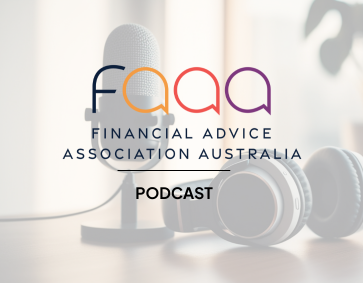A new national survey reveals an overwhelming consensus from teachers, parents and students that financial education is essential and should be taught in schools. This would equip young people with the skills and knowledge they need to make informed money decisions and help them prepare for their financial futures.
Key highlights from Ecstra’s Financial education in schools survey 2025* include:
- 95% of teachers, 98% of parents, and 93% of students agree that learning about money and finance is important.
- Over two-thirds of teachers (73%) and parents (68%) believe financial education has become more critical in the past year due to rising inflation, economic uncertainty, and the growing complexity of financial systems.
- 98% of teachers and 97% of parents agree financial education should be taught in schools, yet 57% of parents report their child is not learning or they are unsure if their child is learning about money concepts at school.
The research found that 65 per cent of students say they face barriers to learning about money, including not knowing where to start (23 per cent), or finding it too complicated or confusing (28 per cent).
Parents expressed that a lack of time (27 per cent) and not having enough knowledge on certain topics (24 per cent) are barriers they face in talking about money to their children.
Seven in ten students (70 per cent) are turning to other sources and are actively using social media to gain knowledge and information about finances.
“While financial literacy is included in the curriculum in subjects such as maths and commerce, students can have limited to concepts as they move through secondary school. The survey results confirm that better access to financial education is critical,” said Ecstra Foundation CEO, Caroline Stewart.
“High inflation, ongoing cost-of-living pressures and interest rate decisions are all affecting household budgets across income brackets. Teaching financial literacy is not just about knowledge in the classroom– it’s about equipping young people with the confidence and skills to navigate an increasingly complex financial world,” added Ms Stewart.
The Financial Education in Schools Survey 2025 explores the experiences, behaviours, and attitudes of parents, students, and teachers towards financial education in Australian schools and at home.
Conducted by YouGov, the nationally representative survey gathered insights from 2,123 Australians, including 417 teachers, 891 students aged 10 to 17, and 815 parents.
Stephanie Hui, Ecstra’s Head of Policy and Engagement says “Teachers play a crucial role in delivering financial education, however, need more support to teach it. Parents recognise their role in teaching children about money but often grapple with time constraints, knowledge and confidence gaps. The survey insights provide opportunities to bridge the gaps - to improve student access to effective programs, to engage students through real life examples, provide more support to teachers and parents, and to elevate financial literacy as a stand-alone compulsory learning area within the Australian Curriculum”.
Students also said they would like to learn (at school) how to save money and plan for the future (53 per cent), how to budget and manage household finances (42 per cent), and how to invest (38 per cent). Topics including tax (31%), super (23%) and crypto (31%) are areas students want to know more about as they start to transition from school to tertiary studies and work.
In 2024 Ecstra launched the Financial Wellbeing Network focused on building a national, cross sector forum for key stakeholders to connect on financial capability issues and help build the financial health and wellbeing of Australians.
“The survey results underscore the need for a coordinated national financial capability strategy with shared goals and outcomes to ensure all Australians can access resources, skills and knowledge at the times they need it the most,” said Ms Stewart. “We are calling on government, educators, industry and the community to work together to make financial education a national priority.”












